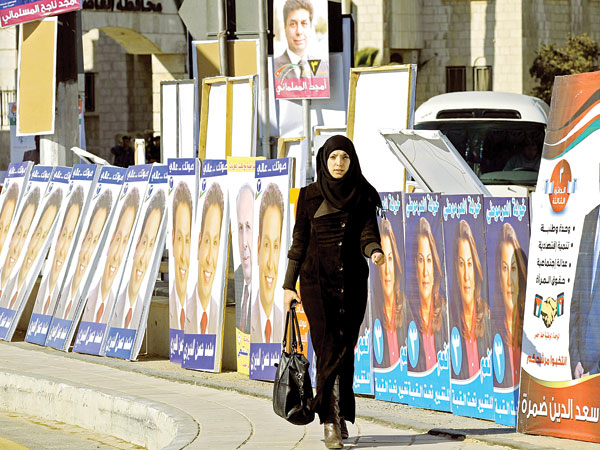Jordanians were voting Wednesday in parliamentary elections boycotted by the Muslim Brotherhood and some other factions.
Jordanians were voting Wednesday in parliamentary elections boycotted by the Muslim Brotherhood and some other factions.
Polling stations opened for 12 hours from 04:00 GMT. An estimated 2.3 million Jordanians are eligible to vote at 1,484 polling stations, choosing from 1,425 candidates, vying for a four-year term in the 150-seat lower house of parliament.
Wednesday's elections are based on a new electoral framework in which for the first time parliamentarians, not the king, will choose the prime minister.
The government is touting the polls as a milestone in a gradual process of bringing greater democracy.
"This time, the elections are clean. It is a step towards reform and not an end to reform. Elections top our reform efforts," Prime Minister Abdullah Nsur told reporters after he voted in his hometown Salt, northwest of Amman.
"This is a new era. I am optimistic about a bright future. The people want strong and firm legislative and executive powers."
However, the opposition says King Abdullah's decisions do not go far or fast enough to end his monopoly on power.
The powerful Muslim Brotherhood and the National Reform Front of former premier and intelligence chief Ahmad Obeidat are staying away from the polls, arguing that there is no real will to reform.
"The coming parliament will be short-lived because it will not have any political weight," Zaki Bani Rsheid, deputy leader of the Muslim Brotherhood, told AFP soon after polls opened.
"Our boycott was the right decision because a parliament or government that is imposed on people is illegitimate," he said.
The Muslim Brotherhood is the single most popular party in Jordan, with strong support in cities, especially among poorer Palestinians who live there. Four smaller parties, including communists and Arab nationalists, are also boycotting the vote.